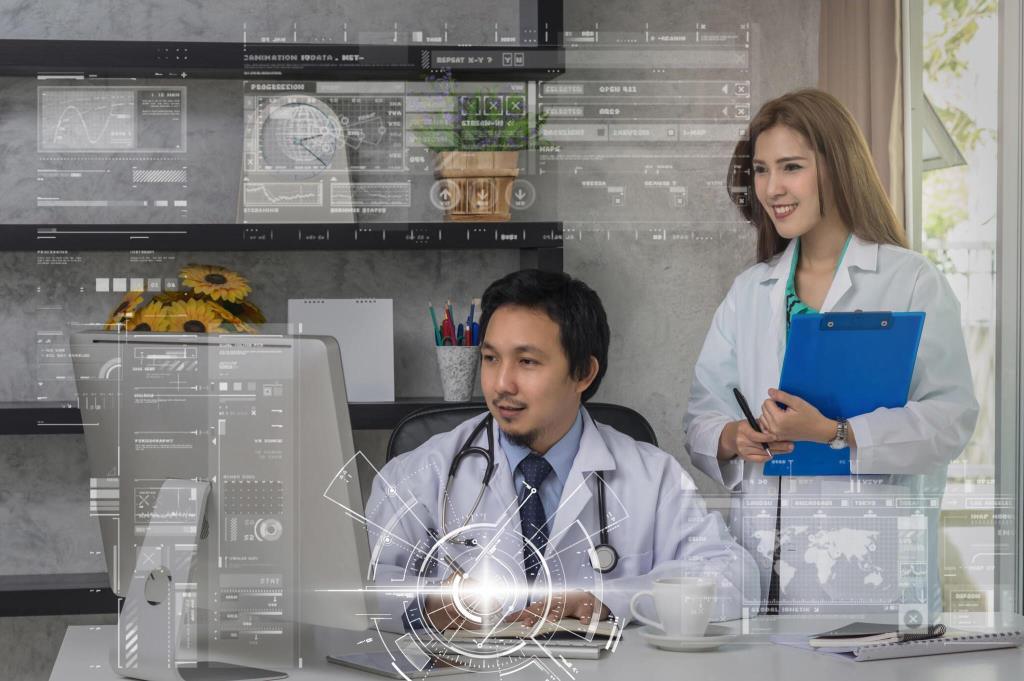The field of healthcare has seen remarkable advancements in recent years, thanks in large part to the integration of artificial intelligence (AI) technology. One of the most significant contributions of AI in healthcare is its ability to assist in the identification and diagnosis of medical problems in patients.
By leveraging AI algorithms and machine learning techniques, healthcare professionals can analyze vast amounts of medical data with unprecedented speed and accuracy, leading to earlier detection and improved treatment outcomes.
In this article, we’ll explore how AI technology is revolutionizing the process of identifying medical problems in patients, paving the way for more efficient and effective healthcare delivery.
The Promise of AI in Healthcare
Artificial intelligence has the potential to transform nearly every aspect of healthcare, from diagnosis and treatment to patient care and administrative tasks. If you need more information about medical diagnosis, you may visit Jagan Solutions.
By harnessing the power of AI, healthcare providers can enhance clinical decision-making, improve patient outcomes, and optimize resource allocation. In the realm of medical diagnosis, AI technology offers the promise of faster, more accurate identification of medical problems, leading to earlier interventions and better patient outcomes.
Understanding AI in Medical Diagnosis
Artificial Intelligence (AI) is revolutionizing the field of medical diagnosis, offering innovative solutions to improve accuracy, efficiency, and patient outcomes. In this article, we’ll delve into the role of AI in medical diagnosis, exploring its applications, benefits, and challenges.
1. Machine Learning Algorithms
At the heart of AI-powered medical diagnosis are machine learning algorithms that can analyze large datasets and identify patterns and correlations that may not be apparent to human observers.
These algorithms are trained on vast amounts of medical data, including patient records, imaging studies, laboratory tests, and genetic information, allowing them to learn to recognize subtle signs and symptoms of various medical conditions.
2. Deep Learning Networks
Deep learning networks, a subset of machine learning algorithms, are particularly well-suited for complex medical diagnosis tasks. These neural networks are capable of processing and analyzing vast amounts of data with multiple layers of abstraction, allowing them to identify intricate patterns and relationships within medical datasets.
Deep learning networks have shown remarkable success in tasks such as medical image analysis, natural language processing, and predictive modeling.
Applications of AI in Medical Diagnosis
Artificial Intelligence (AI) has emerged as a transformative force in the field of medical diagnosis, offering innovative solutions to enhance accuracy, efficiency, and patient outcomes. Let’s explore some of the key applications of AI in medical diagnosis:
1. Medical Imaging Analysis
One of the most significant applications of AI in medical diagnosis is in the analysis of medical imaging studies, such as X-rays, CT scans, MRI scans, and ultrasound images.
AI algorithms can analyze these images with incredible speed and accuracy, helping radiologists and other healthcare professionals detect abnormalities and diagnose conditions such as tumors, fractures, and cardiovascular disease.
2. Diagnostic Decision Support Systems
AI-powered diagnostic decision support systems provide healthcare providers with real-time guidance and recommendations based on the analysis of patient data. These systems can assist clinicians in making accurate diagnoses by analyzing symptoms, medical history, laboratory test results, and other relevant information.
By providing timely and evidence-based recommendations, diagnostic decision support systems help healthcare providers make informed decisions and improve diagnostic accuracy.
Advantages of AI in Medical Diagnosis
Artificial Intelligence (AI) offers several advantages in medical diagnosis, revolutionizing the way healthcare professionals approach patient care. Let’s explore some of the key benefits of AI in medical diagnosis:
1. Improved Accuracy and Efficiency
One of the primary advantages of AI in medical diagnosis is its ability to improve the accuracy and efficiency of diagnostic processes. AI algorithms can analyze medical data with speed and precision, allowing for earlier detection of medical problems and more timely interventions.
By automating repetitive tasks and assisting healthcare providers in making diagnostic decisions, AI technology helps streamline workflows and reduce the risk of errors.
2. Early Detection and Intervention
Early detection is crucial for the successful treatment of many medical conditions, and AI technology plays a vital role in facilitating early diagnosis. By analyzing medical data and identifying subtle signs and symptoms of disease, AI algorithms can detect medical problems at an earlier stage when treatment options may be more effective.
This can lead to better patient outcomes and potentially lower healthcare costs associated with more advanced stages of disease.
Future Directions and Opportunities
As Artificial Intelligence (AI) continues to advance, the future of medical diagnosis holds promising opportunities for innovation and improvement. Let’s explore some of the key future directions and opportunities in AI for medical diagnosis:
1. Personalized Medicine
AI technology has the potential to usher in a new era of personalized medicine, where treatments are tailored to individual patient characteristics, preferences, and genetic profiles.
By analyzing vast amounts of patient data, including genomic information, AI algorithms can identify patterns and trends that may inform personalized treatment plans and improve patient outcomes.
2. Remote Monitoring and Telemedicine
With the rise of telemedicine and remote monitoring technologies, AI-powered diagnostic tools can be deployed to provide real-time insights and recommendations to patients outside of traditional healthcare settings.
These tools can assist patients in monitoring their health, managing chronic conditions, and seeking timely medical attention when needed, ultimately improving access to care and patient outcomes.
Conclusion
In conclusion, AI technology holds tremendous promise for revolutionizing the process of identifying medical problems in patients. By leveraging machine learning algorithms, deep learning networks, and advanced analytics techniques, healthcare providers can analyze vast amounts of medical data with unprecedented speed.
However, challenges such as data quality, privacy concerns, and integration with clinical workflows must be addressed to realize the full potential of AI in medical diagnosis. With continued innovation and collaboration between healthcare providers, researchers, and technology developers. AI technology has the potential to transform the future of healthcare and improve the lives of patients around the world.







